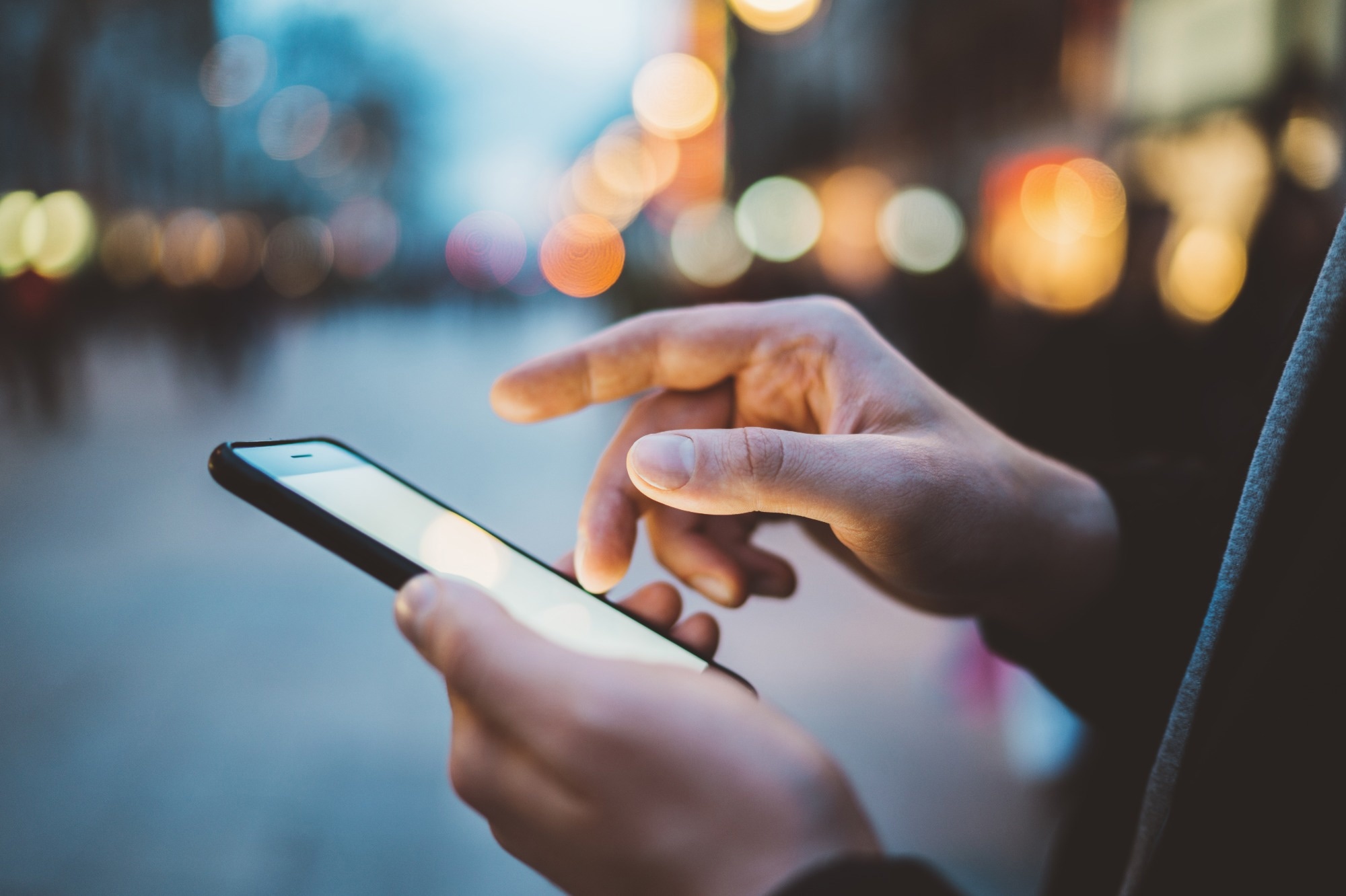Their results, indicating that smartphone addiction negatively impacts well-being directly and indirectly by increasing loneliness, have implications for smartphone-related policies that target students’ well-being by focusing on reducing addiction.
 Study: The mediating role of loneliness in the relationship between smartphone addiction and subjective well-being. Image Credit: ImYanis/Shutterstock.com
Study: The mediating role of loneliness in the relationship between smartphone addiction and subjective well-being. Image Credit: ImYanis/Shutterstock.com
Background
Being excessively reliant on smartphones, including social media access, can reduce happiness and other well-being indicators. These concerns are increasing as smartphone use becomes universal and its adverse effects become more evident, particularly in younger populations.
Loneliness, which researchers define as the gap between actual and expected social interaction, can be exacerbated by smartphone addiction or excessive use.
While individuals may increase smartphone use as a response to loneliness, it appears that over time, smartphone reliance can weaken existing offline relationships.
For university students, higher levels of well-being are associated with lower levels of depression and anxiety, improved academic performance and success, and lower risk of suicide and self-harm.
The role played by loneliness in mediating the influence of smartphone addiction on well-being has been hypothesized but not explored in quantitative studies.
About the study
In this study, researchers hypothesized that smartphone addiction would be negatively correlated with well-being levels in university students and that loneliness would be a mediating factor.
They surveyed students from 16 universities in eight municipalities and provinces across China using a stratified cluster sampling design to ensure a representative sample.
Smartphone addiction was measured using a scale consisting of 16 items related to mood changes, social comfort, salience, and withdrawal symptoms. A higher score indicated that a student was more likely to be addicted to smartphone use.
The scale measuring loneliness comprised 20 items; a higher score indicated stronger loneliness.
Well-being was measured using nine questions related to life satisfaction and overall emotional index, with a higher score indicating better well-being.
Collected data were analyzed using independent sample t-tests, correlation analyses, analysis of variance, bootstrapping, and mediated effect assessments.
Findings
In total, 1,527 students participated in the study, of whom 65.49% were female, 25.54% had an associate degree, 63.59% had a bachelor’s degree, and the remainder were enrolled in post-graduate programs. The participants were between 17 and 40 years old, and nearly 56% came from rural areas.
On average, the students had a well-being score of 5.5; urban students, undergraduates, and richer participants had significantly higher scores, but there was no statistical difference based on gender.
The researchers found a significantly negative association between smartphone addiction and well-being.
Smartphone addiction was also positively correlated with loneliness. Regression models suggested that smartphone addiction was a significant predictor of lower well-being after loneliness was incorporated into the model.
However, smartphone addiction predicted loneliness (slope = 0.28), and loneliness predicted well-being (slope = -0.04), while smartphone addiction continued to have a direct effect on well-being (slope = -0.05).
Based on these findings, the mediating effect of loneliness accounted for approximately 18.5% of the total impact of smartphone addiction on well-being. These results were validated using bootstrapping simulations.
Conclusions
This study built on previous work that primarily focused on specific addictive behaviors related to excessive use of smartphones, like gaming addiction.
While the well-being of the participating university students was related to their demographic background, including family income, education, and place of origin, smartphone addiction was observed to reduce well-being and increase loneliness. Notably, no gender-based differences in well-being and loneliness were seen.
Beyond the direct effect of smartphone addiction on well-being, it also indirectly influences the outcome through its effects on loneliness.
The influence of smartphones may be due to their correlation with reduced outdoor activities, disturbed sleep, depression, anxiety, and other mental health outcomes, reducing overall quality of life.
These findings could indicate that the social needs of college students are not met, leading them to take refuge in their phones.
However, theories suggest excessive smartphone use can strengthen online relationships but weaken or reduce offline interactions and relationships. This can lead to diminished social support structures and heightened isolation.
This study highlights the need to improve the well-being of students by tackling smartphone addiction and bolstering institutional, familial, and peer support networks to reduce loneliness and isolation.
The cross-sectional nature of the survey and subjective measures of well-being used could lead to biases and limit the causal interpretation of the findings.
Future studies are needed to strengthen these findings using robust designs that merge cross-sectional and longitudinal data and make use of objective measures of well-being.